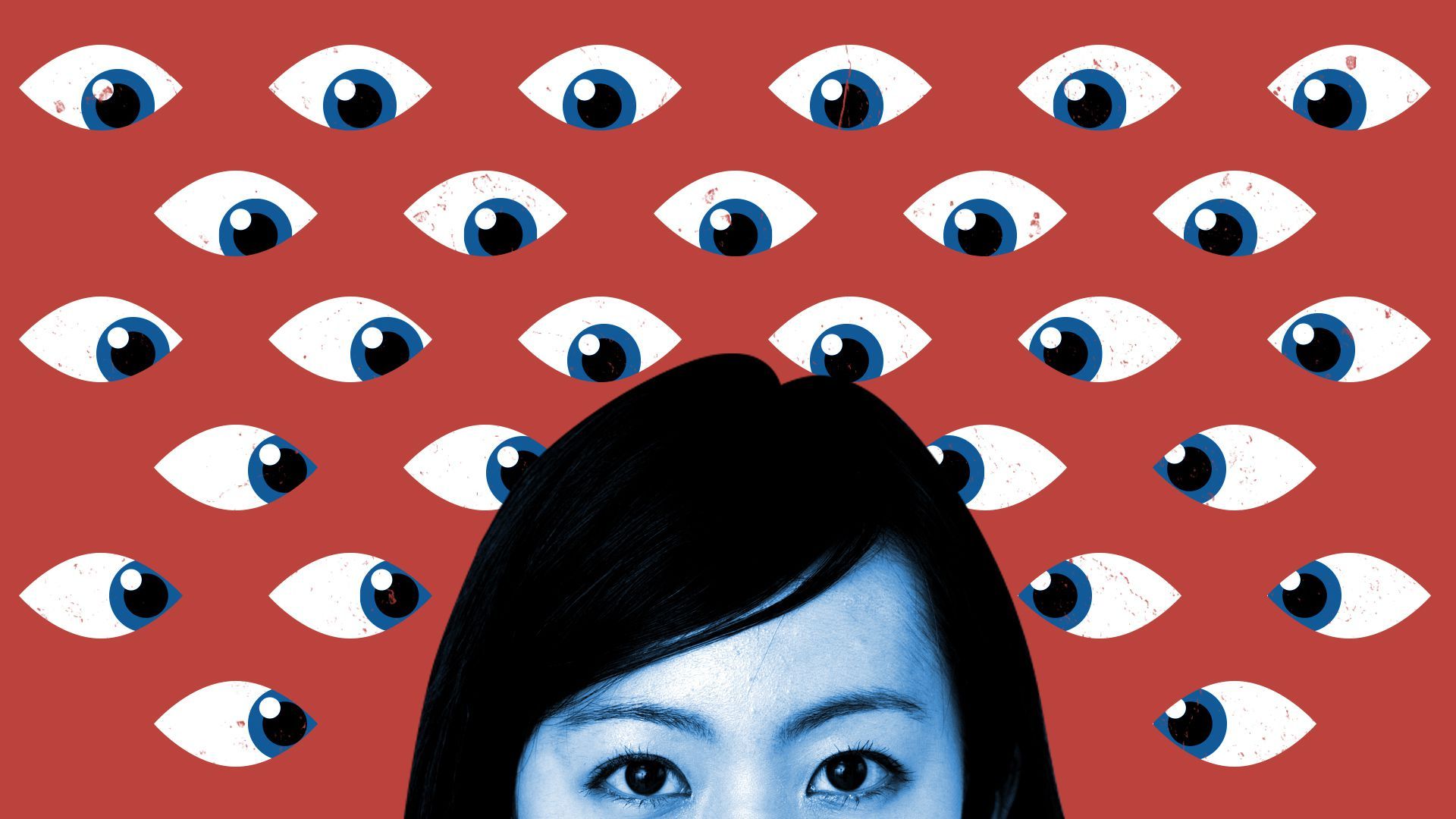The long history of racist attacks against Asian Americans
Add Axios as your preferred source to
see more of our stories on Google.

Illustration: Aïda Amer/Axios
A rise in assaults against Asian Americans last year seems primarily tied to the coronavirus pandemic. Some Asian Americans also worry that heightened tensions between the U.S. and China and growing fears of China's espionage activities stateside could make them more vulnerable to racist attacks.
Driving the news: There were more than 2,800 incidents of verbal and physical assaults directed at Asian Americans in 2020, according to Stop AAPI Hate, an organization founded early last year to track hate crimes against people of Asian American Pacific Islander heritage, Axios' Shawna Chen reports.
What's happening: Most of the recorded incidents were verbal, but some were violent assaults.
- In March 2020, a man stabbed three members of an Asian American family shopping at a Sam's Club in Midland, Texas, allegedly "because he thought the family was Chinese, and infecting people with the coronavirus," according to an FBI report. The victims survived.
- In January, an 84-year-old Thai man in San Francisco was shoved to the ground as he walked, sustaining fatal injuries.
- On Feb. 3, a Filipino man was slashed across the face with a box cutter while riding the New York subway.
Between the lines: Hate crimes tend to surge around "big political moments" and during election years, Michael Jenson, a researcher at the University of Maryland and author of a 2020 report on hate crimes, told NPR.
- "When President Trump began and insisted on using the term 'China virus,' we saw that hate speech really led to hate violence," Russell Jeung, creator of the Stop AAPI Hate tracker and chair of the Asian American studies department at San Francisco State University, told USA Today.
- But Trump "could not have rallied the kind of hatred that he did without this country’s long history of systemic and cultural racism against people of Asian descent," writes Princeton professor Anne Anlin Cheng in a Feb. 21 essay for the New York Times.
That history includes:
- In 1871, at least 17 Chinese residents of Los Angeles were killed by a mob of 500 people.
- In 1882, the Chinese Exclusion Act banned Chinese laborers from entering the U.S.
- In 1885, white residents set fire to Chinese-owned businesses and expelled the Chinese residents of Tacoma, Washington.
- During World War II, Japanese and Japanese Americans in California were forcibly interned in camps.
"People attacking Asian Americans during the quarantine... are not fearing contagion from disease but assigning blame for it. Asian Americans are ... alleged to be culpable for sins ranging from the Vietnam War to an invisible infection. We are guilty by association even if our grandparents lament our alienation from their traditions."— Frank H. Wu, President of Queens College, City University of New York, in a recent report on the targeting of AsianAmericans in New York
Fast forward: The geopolitical tensions between the U.S. and China today, and some proposed approaches for addressing espionage and intellectual property theft in U.S. scientific research, may exacerbate suspicions toward Chinese Americans.
- The Department of Justice's recent indictments of some Chinese scientists at U.S. universities for failing to disclose Chinese government-linked projects has raised concerns of racial profiling.
- Trump-era regulations imposed sweeping visa restrictions that could apply to hundreds of millions of Chinese citizens, and some legislative proposals could prohibit Chinese students from pursuing graduate studies in fields that involve sensitive technology, a controversial approach being pushed by Sen. Tom Cotton (R-Ark.).
What to watch: The New York Police Department created a task force last year to focus on hate crimes directed at Asians. If assaults continue to occur, other regions may consider similar measures.
Editor’s note: This post has been updated to clarify and better explain why Asian Americans may be more vulnerable to racist attacks.
